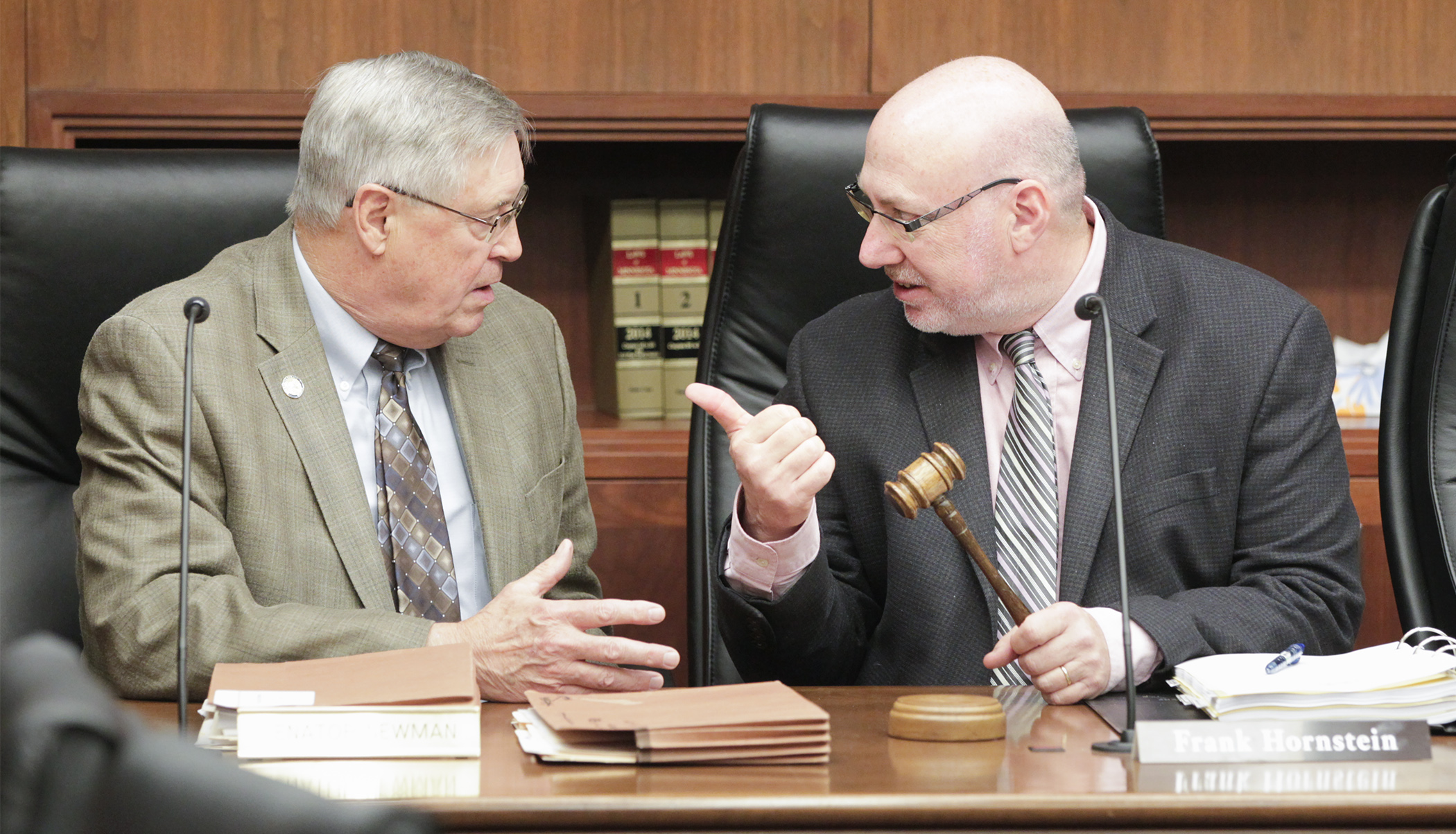Gas tax vs. General Fund — work is underway on bridging major differences in House, Senate transportation bills

Minnesota’s transportation infrastructure needs more money, leaders of the DFL-led House and Republican-controlled Senate agree. Now comes the hard part: hashing out an agreement on how to make that funding boost a reality.
House and Senate negotiators on Monday began the work of reconciling their vastly different approaches to funding the state’s transportation needs, walking through their widely divergent budget proposals and hearing from the state’s top transportation official.
The sticking point at the center of the debate as the close of the legislative session draws near is a clear one: whether state lawmakers should raise taxes to provide that additional funding.
House DFLers and Gov. Tim Walz say yes — both propose increases to the state’s gas tax and various registration fees. Senate Republicans are a hard no, arguing that existing General Fund dollars can be used to boost transportation spending at a time when the state has a projected $1 billion budget surplus.
“Our disagreement lies as to the source of the money,” said Sen. Scott Newman (R-Hutchinson), who co-chairs the conference committee on HF1555, the omnibus transportation finance bill.
[MORE View a spreadsheet comparing the versions of the bill]
The House bill, which closely mirrors Walz’s plan and passed the House on a 74-58 vote April 29, relies on new taxes and fees to raise roughly $1.5 billion in new revenue for Minnesota’s road, bridge and public transportation infrastructure.
It would raise the state’s motor fuels tax by 20 cents per gallon over four years, increase tab and registration fees, and direct the Metropolitan Council to levy a half-cent transit-dedicated sales tax to fund new bus and light rail projects.
In all, the House version, sponsored by Rep. Frank Hornstein (DFL-Mpls), proposes to spend nearly $7.3 billion over the 2020-21 biennium.
The Senate bill, passed on a 40-27 vote May 1 and sponsored by Newman, would spend roughly $6.6 billion over that time frame. In lieu of a gas tax increase, the bill proposes to continue using $450 million from the General Fund to pay for road and bridge projects. Also absent from the Senate proposal is any new transit funding.
Margaret Anderson-Kelliher, the state’s transportation commissioner and former House speaker, told lawmakers that the Senate version of the bill “leaves many Minnesotans by the roadside” and wouldn’t make investments needed to eliminate a $6 billion maintenance backlog.
“The longer we wait to do this the more expensive it will get,” she said.
The conference committee is scheduled to meet again Wednesday at 11 a.m. The governor and legislative leaders have set a May 13 deadline for concluding conference committee work on major finance bills.
Related Articles
Search Session Daily
Advanced Search OptionsPriority Dailies
Ways and Means Committee OKs proposed $512 million supplemental budget on party-line vote
By Mike Cook Meeting more needs or fiscal irresponsibility is one way to sum up the differences among the two parties on a supplemental spending package a year after a $72 billion state budg...
Meeting more needs or fiscal irresponsibility is one way to sum up the differences among the two parties on a supplemental spending package a year after a $72 billion state budg...
Minnesota’s projected budget surplus balloons to $3.7 billion, but fiscal pressure still looms
By Rob Hubbard Just as Minnesota has experienced a warmer winter than usual, so has the state’s budget outlook warmed over the past few months.
On Thursday, Minnesota Management and Budget...
Just as Minnesota has experienced a warmer winter than usual, so has the state’s budget outlook warmed over the past few months.
On Thursday, Minnesota Management and Budget...